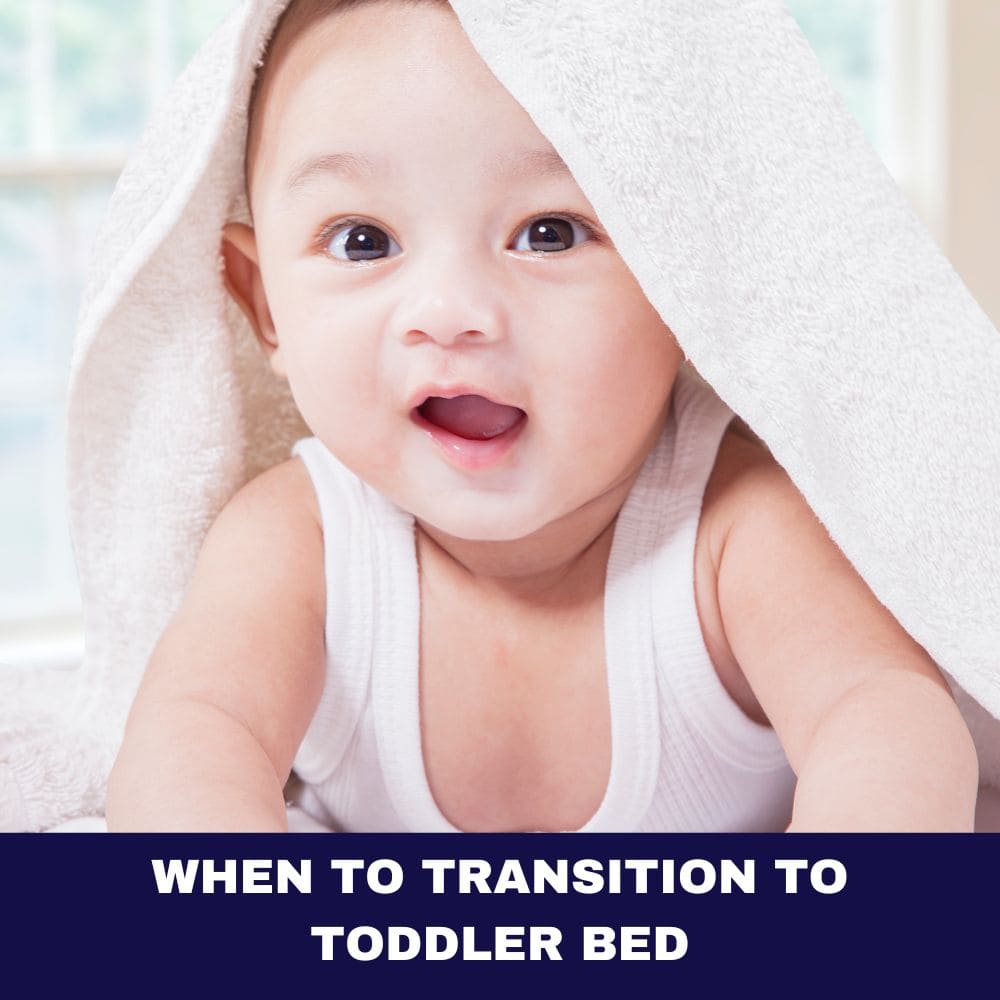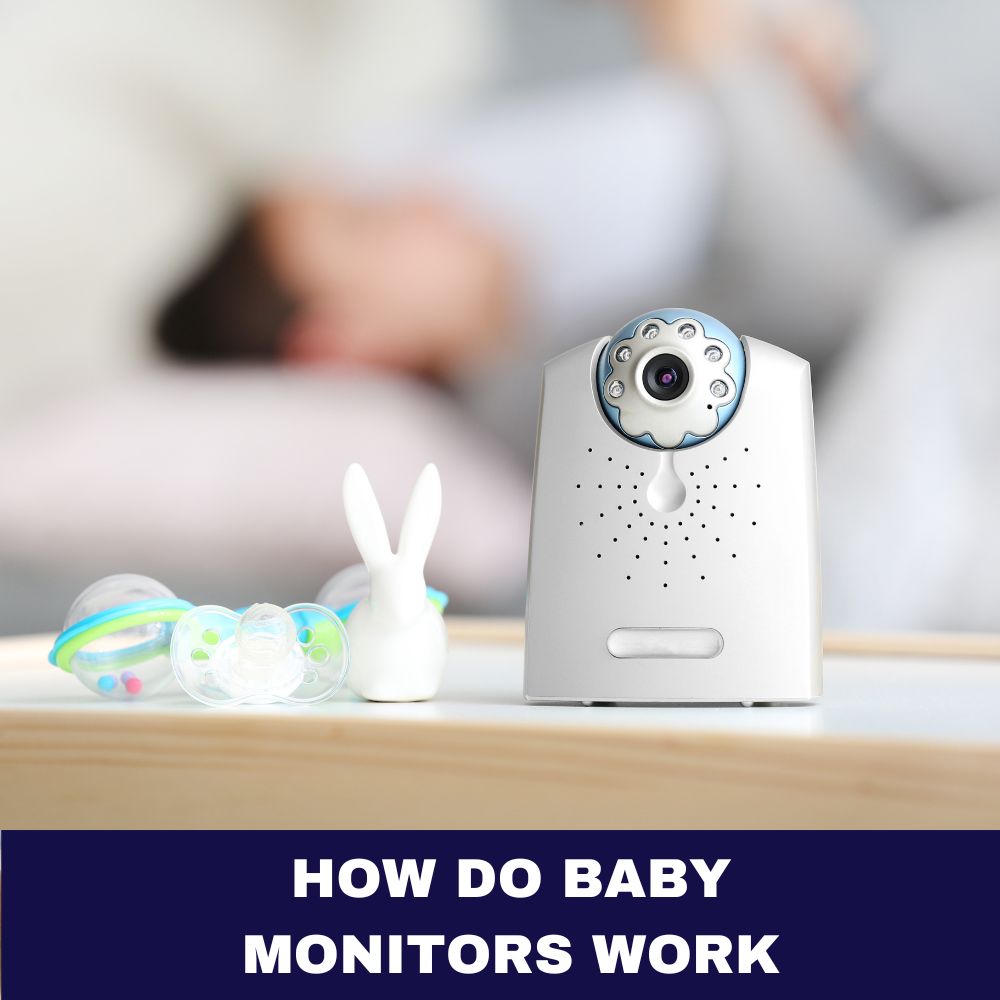In the early hours of the morning, the silence is broken by the cries of a restless baby. You’ve tried everything – rocking, shushing, and even a late-night feeding – but nothing seems to soothe your little one. Sound familiar? If you’re a parent navigating the challenges of the 9 month sleep regression, you’re not alone. This phase can be both exhausting and confusing, leaving you wondering what’s causing your once-peaceful sleeper to wake up frequently throughout the night.
But fear not, for we’ve got you covered with proven solutions to help you and your baby through this temporary setback. In this comprehensive guide, we’ll dive deep into the world of the 9 month sleep regression, exploring its causes, signs, and effective strategies to restore those much-needed ZZZs.
Understanding the 9 Month Sleep Regression
At around 9 months old, your baby may start experiencing sleep disruptions, waking up more frequently during the night or struggling to fall asleep at bedtime. This phenomenon, known as the 9 month sleep regression, is a common developmental milestone that can leave parents feeling exhausted and frustrated.
What does the 9 month sleep regression look like? You might notice your little one:
- Waking up multiple times throughout the night, often crying or fussing
- Having difficulty falling asleep at bedtime, even after a consistent bedtime routine
- Resisting naps or taking shorter naps than usual
- Exhibiting increased fussiness or crankiness, especially during sleep times
While these signs can be distressing, it’s important to remember that sleep regressions are a normal part of your baby’s growth and development.
| Signs |
| Frequent night wakings |
| Difficulty falling asleep at bedtime |
| Resisting or skipping naps |
| Increased fussiness/crankiness during sleep times |
| Regression in self-soothing abilities |

Why is my 9 Month Old Waking Up at Night?
There are several potential reasons why your 9 month old may be experiencing sleep disruptions. Understanding the root cause can help you better address the issue and find effective solutions.
Reason #1: Developmental Milestones
At around 9 months, your baby is going through significant cognitive and physical development. Their brains are rapidly growing, and they’re becoming more aware of their surroundings. This increased awareness can lead to separation anxiety, making it harder for your little one to self-soothe and fall back asleep.
Additionally, your baby may be working on new motor skills, such as crawling or pulling themselves up, which can be exciting but also overstimulating, leading to disrupted sleep patterns.
Reason #2: Teething and Sore Gums
The arrival of new teeth can be a painful process for babies, causing discomfort and irritability. As those little pearly whites start to poke through, your 9 month old may experience sore gums, drooling, and increased crankiness – all of which can make it challenging to sleep through the night.
Reason #3: Baby’s Temperament
Every baby is different, and some are simply more sensitive or prone to sleep disruptions than others. If your little one has a more persistent or intense temperament, they may be more easily awakened or have a harder time self-soothing back to sleep.
Reason #4: Hunger and Changes in Feeding
Schedule Around 9 months, your baby’s nutritional needs may change, and they may require more frequent feedings or larger portions. If they’re not getting enough calories during the day, they may wake up hungry in the middle of the night.
Reason #5: Digestive
Issues like Constipation from New Foods As you introduce new foods to your baby’s diet, they may experience digestive discomfort or constipation, which can lead to restlessness and difficulty sleeping.
Reason #6: Discomfort from Conditions like Eczema
Skin conditions like eczema can cause itchiness, irritation, and overall discomfort, making it challenging for your baby to sleep soundly. Addressing any underlying conditions is crucial for promoting better sleep.

How Long Does the 9 Month Sleep Regression Last?
While the duration of the 9 month sleep regression can vary from baby to baby, it typically lasts anywhere from a few weeks to several months. For most families, the worst of the sleep disruptions tend to occur between 8-10 months, with improvements gradually emerging as your little one approaches their first birthday.
It’s important to remember that every baby is unique, and some may experience a more prolonged or intense sleep regression than others. However, with patience, consistency, and the right strategies, you can help your little one navigate this phase and establish healthy sleep habits.
The impact on parents’ sleep during this time can be significant. Sleep deprivation can take a toll on your energy levels, mood, and overall well-being. That’s why it’s crucial to prioritize self-care and seek support from your partner, family, or friends when needed.
How Much Sleep Do Babies Need at 9 Months?
At 9 months old, your baby typically needs around 12-14 hours of sleep per day, including naps. However, keep in mind that every child is different, and some may require slightly more or less sleep.
Establishing a consistent sleep routine can be incredibly helpful during this phase. A predictable bedtime routine, such as a calming bath, massage, and bedtime story, can signal to your baby that it’s time to wind down and prepare for sleep.
| Sleep Duration | Hours |
| Total Sleep | 12-14 hours |
| Night Sleep | 10-12 hours |
| Day Sleep (Naps) | 2-4 hours |
Proven Solutions for the 9 Month Sleep Regression
While the 9 month sleep regression can be challenging, there are several proven strategies you can implement to help your baby (and yourself) through this phase.
Establishing a Calming Bedtime Routine
A consistent bedtime routine can work wonders in promoting better sleep for your 9 month old. Consider incorporating soothing activities like a warm bath, gentle massage with a calming lotion (Mustela offers a range of baby-safe products), and reading a bedtime story.
These familiar rituals can help your little one wind down and associate certain cues with sleep, making it easier for them to settle down at night.
Next Step: Create a predictable bedtime routine that you follow every night, even when traveling or during disruptions. Consistency is key!
Creating a Sleep-Friendly Environment
Your baby’s sleep environment can play a significant role in their ability to fall and stay asleep. Aim to keep their room at a comfortable temperature (between 68-72°F or 20-22°C), and ensure it’s dark and quiet.
Consider using blackout curtains or shades to block out any external light, and invest in a white noise machine to mask any disruptive sounds. A cozy sleep sack or swaddle can also help your baby feel secure and promote better sleep.
Next Step: Evaluate your baby’s sleep environment and make any necessary adjustments to create a calming, sleep-friendly space.

Adjusting Sleep Schedules and Nap Times
During the 9 month sleep regression, you may need to adjust your baby’s sleep schedule to accommodate their changing needs. If your little one seems overtired or overstimulated by bedtime, try moving their bedtime earlier by 15-30 minutes.
Conversely, if they consistently wake up earlier than desired, you can attempt shifting their bedtime slightly later. It’s all about finding the sweet spot that works best for your baby’s unique sleep patterns.
Additionally, pay attention to your baby’s wake windows (the time between sleep periods) and ensure they’re getting age-appropriate nap times. At 9 months, most babies do well with wake windows of around 2.5-3.5 hours.
Next Step: Track your baby’s sleep patterns and make gradual adjustments to their schedule as needed, aiming for the ideal balance of wake times and nap durations.
Addressing Teething Discomfort
If teething seems to be the culprit behind your baby’s sleep struggles, there are several strategies you can try to provide relief:
- Offer chilled teething rings or a cold, damp washcloth for your baby to gnaw on
- Gently massage their gums with a clean finger
- Provide appropriate doses of acetaminophen or ibuprofen (as recommended by your pediatrician) to alleviate pain and discomfort
- Offer extra cuddles and comfort, as the soothing power of your presence can be incredibly calming for a teething baby
- Consider using a white noise machine to mask any nighttime fussing or crying
If your baby’s teething discomfort seems severe or persists, don’t hesitate to consult your pediatrician for additional guidance.
Next Step: Prepare a teething kit with safe, soothing items like teething rings, washcloths, and pain relief recommendations from your pediatrician.
Reviewing Baby’s Diet
At 9 months, your baby’s nutritional needs may have changed, and they may require more calories or a different feeding schedule. Ensure they’re getting adequate milk intake (around 400-500 calories per day from breastmilk or formula) and monitor for signs of hunger.
If you suspect your baby is waking up from hunger, consider trying a “dream feed” – offering a feed while they’re still asleep around 10-11 PM. This can help them sleep for a more extended stretch before their next feeding.
Additionally, as you introduce new solid foods, be mindful of potential constipation triggers like certain proteins, dairy products, or high-fiber foods. Keeping an eye on your baby’s bowel movements and adjusting their diet accordingly can help alleviate any digestive discomfort that may be disrupting their sleep.
Next Step: Evaluate your baby’s feeding schedule and caloric intake, and make adjustments as needed to ensure they’re getting enough nutrition throughout the day and night.
Treating Eczema for Better Sleep
If your baby is dealing with eczema or other skin conditions, the itchiness and discomfort can significantly impact their ability to sleep well. To help soothe their skin and promote better rest, consider using gentle, fragrance-free products specifically designed for sensitive skin.
Mustela’s Stelatopia collection, for example, includes a cleansing gel, cream, and even specialized pajamas to help manage eczema flare-ups. Proper skincare can go a long way in alleviating itchiness and discomfort, allowing your baby to sleep more peacefully.
Next Step: Consult with your pediatrician or dermatologist to develop a skincare routine tailored to your baby’s specific needs, and explore gentle, soothing products like Mustela’s Stelatopia line.
Seeking Support and Self-Care
Navigating the 9 month sleep regression can be emotionally and physically draining for parents. It’s crucial to remember that your well-being is just as important as your baby’s, and you can’t pour from an empty cup.
Don’t hesitate to ask for help from your partner, family members, or trusted friends. Having an extra set of hands to assist with nighttime wakings or providing you with a much-needed break can make a world of difference.
Additionally, prioritize self-care activities that help you recharge and maintain your energy levels. Whether it’s taking a relaxing bath, going for a short walk, or simply taking a few deep breaths, these small acts of self-care can help you better cope with the demands of this challenging phase.
Next Step: Create a support system and develop a self-care routine that works for you, even if it’s just 10-15 minutes a day to practice mindfulness or engage in an activity you enjoy.
When to Seek Professional Help
While sleep regressions are common and typically resolve on their own, there may be instances when seeking professional help is warranted. If your baby’s sleep issues persist for several months without improvement, or if you notice any concerning changes in their behavior, growth, or overall well-being, it’s essential to consult with your pediatrician.
Additionally, if you’re struggling with overwhelming feelings of exhaustion, anxiety, or postpartum depression, don’t hesitate to reach out to a mental health professional for support.
Conclusion:
The 9 month sleep regression can be a challenging phase for both babies and parents, but rest assured, it’s a temporary setback. By understanding the reasons behind your little one’s sleep struggles, creating a sleep-friendly environment, and implementing proven strategies like adjusting schedules and addressing discomfort, you can help your baby (and yourself) navigate this phase with greater ease.
Remember, every baby is unique, and what works for one may not work for another. Stay patient, be consistent, and don’t hesitate to seek support when needed. With time and persistence, those restful nights will return, and you’ll look back on this phase as just another milestone in your incredible journey of parenthood.
So, take a deep breath, embrace the chaos, and know that you’ve got this, one sleepless night at a time. Sweet dreams, parents!
FAQ – 9 Month Sleep Regression
How can I tell if my baby is going through the 9 month sleep regression or if there’s another issue?
While the common signs like increased night wakings, difficulty falling asleep, and crankiness during sleep times can indicate the 9 month sleep regression, it’s essential to rule out other potential causes. Pay close attention to any accompanying symptoms, such as fever, loss of appetite, or changes in bowel movements, which could signify an illness or underlying condition.
Additionally, consider whether your baby has recently hit any developmental milestones like crawling or pulling up, as these physical achievements can also contribute to sleep disruptions. If you’re unsure or the sleep issues persist for an extended period, don’t hesitate to consult your pediatrician for further evaluation.
Is it okay to let my baby cry it out during the 9 month sleep regression?
The decision to let your baby cry it out during the 9 month sleep regression is a personal one and depends on your parenting philosophy and comfort level. Some parents find that sleep training methods like controlled crying or extinction (crying it out) can be effective in helping their baby learn to self-soothe and sleep through the night. However, others prefer gentler approaches like co-sleeping or responsive settling.
If you choose to try sleep training, it’s essential to be consistent and follow the recommended guidelines to avoid causing unnecessary stress or emotional harm to your baby. Additionally, consider your baby’s temperament and developmental stage, as some babies may not respond well to certain sleep training methods. Ultimately, trust your instincts and do what feels right for your family.
Can teething really cause sleep disruptions in 9 month olds?
Absolutely! Teething can be a significant contributor to sleep issues in 9 month olds. As new teeth begin to emerge, babies can experience discomfort, swollen gums, and increased drooling, which can lead to restlessness, frequent waking, and difficulty falling asleep. The pain and discomfort associated with teething can be intense for some babies, making it nearly impossible for them to sleep soundly.
If you suspect teething is the culprit behind your baby’s sleep regression, try offering teething rings, gently massaging their gums, or providing appropriate doses of over-the-counter pain relief medication (as recommended by your pediatrician). Providing extra comfort and cuddling can also help soothe your little one through this challenging phase.
My baby seems hungrier than usual during the 9 month sleep regression. How can I ensure they’re getting enough to eat?
It’s common for babies to experience increased hunger during the 9 month sleep regression due to their rapidly growing bodies and changing nutritional needs. To ensure your baby is getting enough to eat, consider increasing their caloric intake by offering additional feedings or larger portions during the day.
You can also try a “dream feed” around 10-11 PM, where you offer a feeding while your baby is still asleep, potentially helping them sleep for a more extended stretch before their next feeding. Additionally, pay attention to your baby’s cues and offer feedings or solids when they show signs of hunger, even if it’s outside of their regular schedule. Consult with your pediatrician if you
Is it normal for the 9 month sleep regression to come and go?
Yes, it’s entirely normal for the 9 month sleep regression to come and go, with periods of better sleep followed by a resurgence of sleep disruptions. This sleep regression is often linked to developmental milestones, so as your baby hits new milestones, you may notice a temporary setback in their sleep patterns.
Additionally, factors like illness, teething, or changes in routine can also trigger the sleep regression to reappear. The key is to remain consistent with your sleep strategies and routines, while also being patient and understanding that this phase is temporary. With time and persistence, your baby’s sleep patterns will eventually stabilize, and the sleep regression will become a distant memory.












